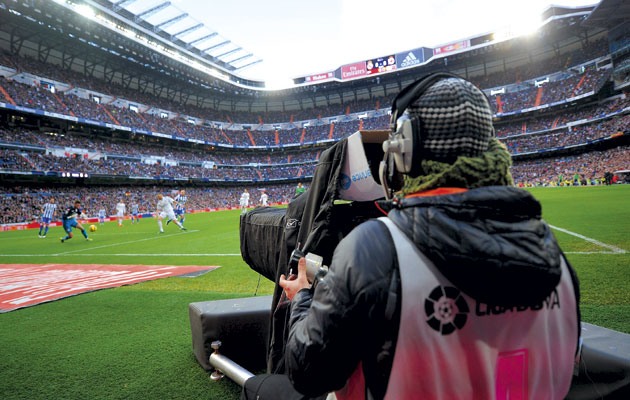It was heralded as the panacea to all of Spanish football’s ills, the start of a bright new era – and it may yet prove to be just that – but the initial consequence could not have been more different. Instead of peace and equality, Spanish football’s new TV deal brought a strike that threatened the final two weeks of the season.
In the end, the strike failed, postponed by a judge pending a full hearing in June, but things will probably never be the same again.
From the start of the 2016-2017 season, TV rights will be sold collectively and centrally in Spain, with the aim of reducing the huge disparities earned by the country’s clubs in a deregulated system in which each negotiated its own deal.
The idea is that, at most, the difference between the highest earning club and the lowest will be no greater than 4.5 to 1, with the hope that it will drop as low as 3.5 to 1. Currently, the gap is greater than 10 to 1. Of the money made, 90 per cent will go to first division clubs and 10 per cent to second division clubs. Of that 90 per cent, half will be distributed equally, while the other half will be distributed according to results over the last five years and “social significance”, defined by membership, ticket sales, TV audience, etc.
Madrid and Barcelona are beneficiaries, though, as the law enshrines their power. They will be protected for the first six years covered by the law – in other words, the first two TV deals – with their current income guaranteed even if the overall amount drops. They will also be the only clubs ever-present in the body set up to control and manage the TV deal, making up two of the six members.
That last point underlines that this law is about more than just the TV rights that provide the fundamental source of income for the game. Drawn up by the government in collaboration with the league, the LFP, it deals with a whole series of structural issues in the game and could be seen almost as a new constitution for Spanish football. It could also be seen as something of a palace coup, tilting the balance away from the Federation and towards the government and the LFP.
The strike called by the players’ union, the AFE, was backed by the Football Federation, the RFEF, as both felt ignored in the construction of the law and had seen their influence reduced. By threatening to strike, the AFE did at least succeed in addressing its greatest complaint: that it had simply not been listened to. But it has been effectively cut out of the distribution of funds and is not directly represented in the decree.
The RFEF, meanwhile, complained of “continued interference” from the government, a reduction in the money it will receive from the football pools and the fact that money generated by football will be channelled into other sports, at the discretion of the government. It had threatened that FIFA may intervene against what it defines as “political interference”. The RFEF’s status as formal rights holders had been removed. Therein lies the key point of conflict.
The president of the Federation, Angel Maria Villar, and the president of the league, Javier Tebas, have been in open conflict for some time. With the strike postponed by a judge, Tebas has emerged as the undisputed winner. Backed by the law, the league and the government are stronger now.
In theory, the league’s hand should be strengthened when it comes to negotiating TV deals, providing a more rational structure and greater equality. There may, however, be more challenges ahead.






